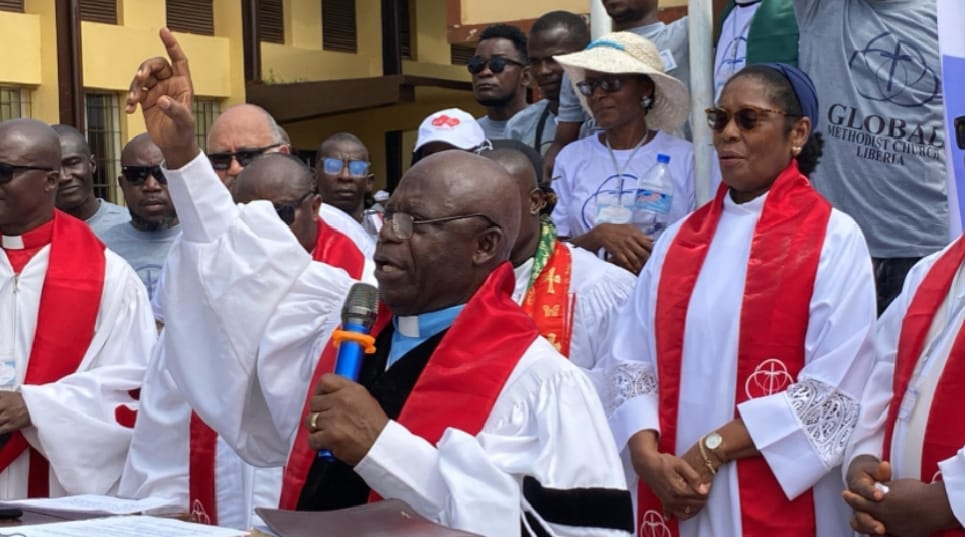The United Methodist Church in Liberia has experienced a significant schism, culminating in the formation of a new denomination, the Liberia United Methodists for Biblical Christianity, which will operate under the Global Methodist Church (GMC). This division, formally announced at the 192nd Annual Conference in Gbarnga, Bong County, stems from long-standing disagreements concerning same-sex marriage and the implementation of a new regionalization policy. The breakaway faction, led by Rev. Dr. Jerry Perry Kulah, argues that the UMC’s evolving stance on these issues contradicts fundamental biblical principles and traditional Methodist values. The core of the dispute lies in the UMC’s increasingly inclusive definition of marriage, which now recognizes unions between “two consenting adults,” departing from the traditional view of marriage as exclusively between a man and a woman.
The Liberia United Methodists for Biblical Christianity maintains that marriage, as ordained by God, is solely between a man and a woman, a position they believe is firmly rooted in scripture. They contend that homosexuality is incompatible with Christian teachings and therefore necessitates their separation from the United Methodist Annual Conference. This unwavering commitment to a traditional interpretation of biblical doctrine has fueled the growing tension within the UMC, ultimately leading to this formal split. The recent disaffiliation of 142 members from the 72nd United Methodist Church in Paynesville further underscores the depth of the divide over the issue of same-sex marriage within the Liberian Methodist community.
The theological rift within the UMC centers on the interpretation of scripture and its application to contemporary social issues, particularly LGBTQ+ inclusion. The breakaway faction adheres to a literal interpretation of biblical texts, emphasizing the sanctity of traditional marriage and rejecting any deviation from this established norm. They argue that the UMC’s progressive stance on same-sex marriage represents a departure from core Christian values and undermines the authority of scripture. This divergence in theological interpretation has created an insurmountable chasm between the two groups, making reconciliation increasingly unlikely.
The regionalization policy, although mentioned as a contributing factor to the schism, has been overshadowed by the more contentious issue of same-sex marriage. However, it represents another point of contention within the UMC, reflecting differing views on governance and administrative structure. While the specifics of this policy and its impact on the Liberian context remain less clear, it adds another layer of complexity to the already fractured relationship between the newly formed denomination and the UMC. The convergence of these two issues, same-sex marriage and regionalization, has created a perfect storm, accelerating the division and ultimately leading to the formal establishment of the Liberia United Methodists for Biblical Christianity.
Rev. Dr. Kulah, a prominent figure in the breakaway movement and former head of the Master’s Program at the United Methodist University, has articulated the theological rationale behind the separation. He argues that the UMC’s revised Book of Discipline, which includes the expanded definition of marriage, represents a betrayal of core Methodist doctrines and biblical principles. His leadership and vocal advocacy for traditional values have played a significant role in galvanizing support for the new denomination, providing a focal point for those who feel alienated by the UMC’s evolving stance on social issues.
The emergence of the Liberia United Methodists for Biblical Christianity reflects a broader trend within global Christianity, characterized by increasing polarization over issues of sexuality and gender identity. This schism highlights the challenges faced by religious institutions as they grapple with evolving societal norms and differing interpretations of scripture. The long-term implications of this division for the Methodist community in Liberia remain to be seen, but it undoubtedly marks a significant turning point in the history of the church, signaling a deepening divide within the Christian faith. The future will reveal how these two denominations navigate their separate paths and how this division will impact the religious landscape of Liberia.














